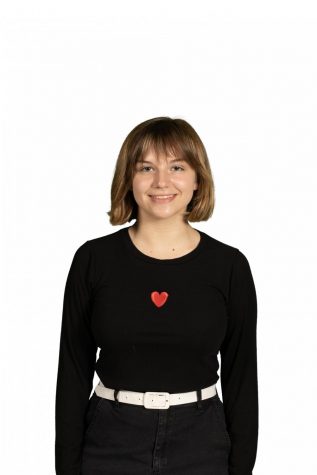Corona commercials
Pandemic causes companies to release new advertisements
Photo by Allyson
May 6, 2020
Piano music plays softly in the background, setting a serious tone for the next 30 seconds. The screen pans to a random nature shot. Usually it’s a sun rising into the sky or a cluster of trees basking in the daylight. Eventually, the video reveals the reason behind its creation: to sell a product during the pandemic.
It feels like every commercial wants to make sure we know we’re in a state of national emergency. There are so many coronavirus commercials, it’s like they’re an entire video genre of their own with different brands taking different approaches for marketing their products during these trying times.
Never before has being a hero been so effortless. With stay at home policies on the rise, the government is urging the public to self isolate as much as possible. Burger King promotes this idea by dubbing its customers who opt for delivery as “couch patriots.” Their commercial shows average citizens, lounging in sweatpants and sprawled on furniture, saluting from the safety of their homes. Although those on the frontlines are the real lifesavers during the pandemic, it’s a nice ego booster for your TV to call you a national hero when productivity seems impossible.
Strangely enough since the virus has made everyone practically homebound, car companies are taking this time to bombard our screens with their vehicles. Due to its sympathetic narrations and inspirational music blaring in the background, the coronavirus car commercials might be the most dramatic of them all. One common theme in these commercials is avoiding words like “COVID 19” or “coronavirus.” It’s as if they could catch the disease from just uttering its name. Instead, these commercials opt for vague phrases like “in these uncertain times” or “now more than ever, we need to stick together.” This breed of advertisement is undeniably sappy and sentimental. However, something about these ads’ cheesy instrumentals and hopeful themes can bring optimism to viewers, even if only for less than a minute.
Corona commercials are invading more than traditional TV screens. In wake of all non-essential businesses shutting down, people are required to live with minimal outside assistance. This means quaranteeners all over the world are learning to teach their kids, groom their dogs and maintain their beauty in ways they never imagined. YouTube has their own advertisement on their official YouTube channel showcasing several “Do It Yourself” tutorials uploaded by real users on the platform. The ad manages to find humor in a dark situation by showing DIY mishaps. Although one person’s attempt to soak her residue nail polish away proved unpleasant and a dog owner’s try at grooming their canine made the furry friend look “like a fried chicken leg,” videos like these are great when learning independence during isolation.
Although many things have changed in the past month, one tradition barely impacted by recent events is the old fashioned art of pizza delivery. This lack of change didn’t stop chains such as Domino’s from giving their ads a time sensitive spin. Their commercial involves a “Risky Business” era Tom Cruise impersonator gliding through a hallway in that famous white shirt, socks and underwear combo. It could almost be aired any time of the year. There is only one phrase from the narrator that indicates the ad was made recently: “contactless delivery.” As the commercial closes, the narrator promises viewers they will not have face-to-face contact with their delivery guy. Commercials like these skillfully embed corona related messages while still creating an upbeat ad to lift the spirits of channel surfers.
Encouraging customers to steer away from their product seems like the opposite of good marketing. However, Uber’s latest Instagram ad is not advertising their services. It is advertising a safer tomorrow. The clip begins with a dreamy, purple pink sky that fades to several faces popping up on the screen. The people presented in the video are of all different ages and appearances. Their eyes are wrinkled with age or bright for the future. Their skin tones vary from white to olive to dark. While each person looks different, the activities they do in the video are strikingly similar. They laugh, dance and stand as one, just as the rest of the world is doing right now. Suddenly, the screen shifts to a skyline that reveals the words, “Stay home for everyone who can’t” and “Thank you for not riding with Uber.” Brands would usually never urge consumers to not give them money, but these odd times call for equally odd commercials.
Something about this crisis has caused industries to turn to music for their ads. In one particular Walmart commercial, different employees clad in their signature blue vests, and apparent sunny spirits, sing an acapella version of “Lean on Me” by Bill Withers. The song is a simple tune about depending on one another in times of crisis, but it takes on a much more specific context in light of recent events.
Constantly flipping on the TV to see yet another commercial informing you of obvious news can get exhausting, but if done right, these ads can do more than give audiences a new item to buy. They can uplift anxious audiences. They can highlight the humor in the globe’s greatest health crisis. They can bring the nation together. Although the virus’ infecting our television doesn’t sound like the answer to our problems, they can distract isolated bingwatchers from the typical stream of corona content.















